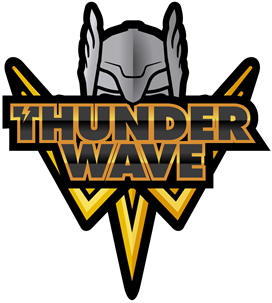The last decade of the last century is the starting point of Captain Marvel, which shows how we got to the events that resulted in the most recent Avengers: Infinity War and Endgame films. Despite having happened so recently, the 1990s seem like ages ago, due to the huge changes that happened with technology.
1. Cinema

Commercial cinema begins this decade by bringing art cinema to the general public, when names like Woody Allen, Martin Scorsese and Pedro Almodóvar begin to succeed on a large scale, making room for newcomers like Quentin Tarantino, Robert Rodriguez and the Coen brothers. Marvel's superheroes begin to gain space on the big screen, with characters like Blade, Daredevil and Elektra. The then-small animation studio Pixar starts making feature films in CGI, revolutionizing cartoons – with a little help from Steve Jobs, who had been fired from Apple and started helping the new initiative. The decade ends with George Lucas announcing something Star Wars fans have always dreamed of: a new trilogy of the Jedi universe. The great success of the end of the decade is the adaptation that the director of the Terminator films - James Cameron -, makes for the sinking of the ship Titanic. In Brazil, national cinema begins to rise again, mainly with Carlota Joaquina, directed by Carla Camurati. The decade ends with a Brazilian film, Central do Brasil, by Walter Salles, competing for the Oscar for best foreign film – and making the eternal Fernanda Montenegro compete for the best actress award.
2. Música

The decade begins with Nirvana dethroning established artists like Guns N' Roses, Michael Jackson and Madonna, changing the rules of the game with a dirty, heavy and loud (albeit melodic and easily assimilated) sound and bringing punk's anti-commercial attitude to life. the mainstream spotlight – thus creating a rock subgenre called at first alternative rock. The electronic music of groups like Massive Attack, Portishead, Prodigy and Chemical Brothers begins to conquer the world, making guitars and guitars take a back seat. Rap also grows as a commercial force, mainly from gangsta rap, which creates a scenario in which the east and west coasts of the USA begin to rub against each other. In Brazil, radio stations are dominated by the trio axé music, sertanejo and pagode, which help boost sales of a new way of listening to music – the compact disc. Although the CD was released in the 80's, it was from the 90's that it found the general public and became the main sound medium in the market, which made Brazil, unlike other countries, end the manufacture of vinyl. The decentralization of music production was also another feature of the decade here, when groups from Recife (Chico Science & Nação Zumbi and Mundo Livre S/A), Belo Horizonte (Pato Fu and Skank), Brasília (Raimundos, Little Quail and Maskavo Roots ) and Porto Alegre (Graforreia Xilarmônica and Wander Wildner) began to gain a space that previously belonged only to bands from Rio de Janeiro and São Paulo.
3. Televisão

The main change that happened in television during this decade was the revitalization of serials. Until the 1980s, serials were redundant and didn't tell a continuous story, they just circled around a basic script repeated over and over again with the same characters as always. After the departure of filmmaker David Lynch to television, this began to change. Lynch kicked off the decade with the hit Twin Peaks, which only lasted two seasons but completely changed the way TV was done. Starting with Twin Peaks, series such as The X-Files and Buffy - The Vampire Slayer went even further and transformed the structure of TV using a new parameter that would be embraced by the HBO broadcaster from the following decade, with series such as The Sopranos and The Wire. . These, in turn, instigated the creation of modern classics like Lost, Breaking Bad and Mad Men – all in a way heirs to the Twin Peaks transgressions of the early part of the previous decade.
4. Tecnologia e internet

The internet was invented in the 60s, but it wasn't until the 90s that it stopped being exclusive to a small group of geeks and tech junkies. It was with the creation first of the world wide web language and then with the popularization of navigation programs that people began to visit the network, at a time when there was no YouTube, Google or Facebook and the closest one had to a social network. it was the email. Outside the web there were few popular forms of communication, such as ICQ instant messenger and news portal chats. Cell phones and digital cameras were huge and expensive, only the very rich had access – especially in Brazil. The personal computer, which was already a reality for North Americans and Europeans, began to become popular in Asia and Latin America – and Brazil followed this trend. It was in this decade that the MP3 was launched, almost simultaneously with the most popular digital music player of that period, the WinAmp. The decade ended with the popularization of an online file-sharing program called Napster, which would usher in a new era of recorded music by allowing anyone to visit – and download – anyone else's disco.
















































